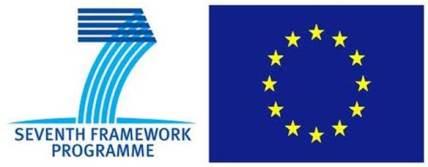Duyurular / Etkinlikler

IME (Identities and Modernities in Europe) investigates European identities.
European identities in this project refer to a wide range of definitions of 'us, the Europeans' proposed and acted upon by various actors in and around the current European Union (EU), in particular in nine cases: Bulgaria, Croatia, Finland, France, Germany, Greece, Hungary, Turkey, and the United Kingdom.
The project addresses three major issues regarding European identities: what they are, in what ways they have been formed and what trajectories they may take from now on.
IME first investigates the diversity of European identities as it manifests in the nine cases.
It then examines the various ways in which these diverse self-definitions have been formulated and maintained in different societal, cultural and systemic settings and in which they have been interacting with various processes and forces.
It then aims to identify commonalities among diverse European identities in the nine cases as the basis of grounded projection of possible trajectories European identities may take as the processes of European integration continue.
The project therefore has the following objectives:
» to map the diversity of European identities across the cases studied in relation to four factors: type of state, type of religion, the strength of civil society and geo-historical and geo-political background;
» to analyse in each case how European identities have evolved within the specific historical context in relation to other forms of identification, especially national identity;
» to investigate the role of the EU integration processes in modifying the contemporary identities, especially in its relationship to national and religio-ethnic identities;
» to examine the extent to which religio-ethnic minorities influence identity construction programmes of the majority, and their unique contribution to the articulation of European identities;
» to seek commonalities in European identities across the cases by way of systematic comparisons;
» to test the validity of theory of multiple modernities as a sound basis for projecting the trajectory of the future of European identities
Project acronym: IME
Project number: SSH-CT-2009-215949
Project starting date: 1 May 2009
Duration: 36 months
Project budget (EU contribution): €1,447,773.00
Consortium
» Kingston University
» Hellenic Foundation for European and Foreign Policy (ELIAMEP)
» Helsinki University
» Fondation Nationale des Sceinces Politques (Sciences Po)
» University of Duisburg-Essen
» The Institute for Ethnic and National Minority Studies at the Hungarian Academy of Sciences
» International Centre for Minority Studies and Intercultural Relations (IMIR)
» Istanbul Bilgi University
» University of Zagreb
Meetings
First project meeting: 29-30 May 2009, Kingston University
Second project meeting: 19-20 Novemeber 2009, Athens, Greece
Third project meeting: 6- 7 May 2010, Opatija, Croatia
Fourth project meeting: 7-8 October 2010, Istanbul, Turkey
Fifth project meeting: 24-25 February 2011, Paris, France
Sixth project meeting: 13-14 June 2011, Helsinki, Finland
Seventh project meeting: 28-29 March 2012, Kingston, England
Reports on the Turkish case
IME- WP 9 Report on Bologna in Greece, Turkey and Croatia
IME- WP 8 'Consolidation of the case study: Turkish Case'
IME- WP 7 'Citizens and Modernities: Between National and European Paths in Turkey'
IME- WP 6 'Identity construction programmes of non-state, professional and collective actors: Case study phase II'
IME- WP 5 'Identity construction programs of the state and the EU:
Case Study Phase I' Turkish Case report
IME- WP 4 "The state of the art:
various paths to modernity" Turkish Case report
All documents are available at: http://fass.kingston.ac.uk/public/ime/
Links
Cordis SSH http://cordis.europa.eu/fp7/ssh/
Europa SSH http://ec.europa.eu/research/social-sciences/index_en.html

